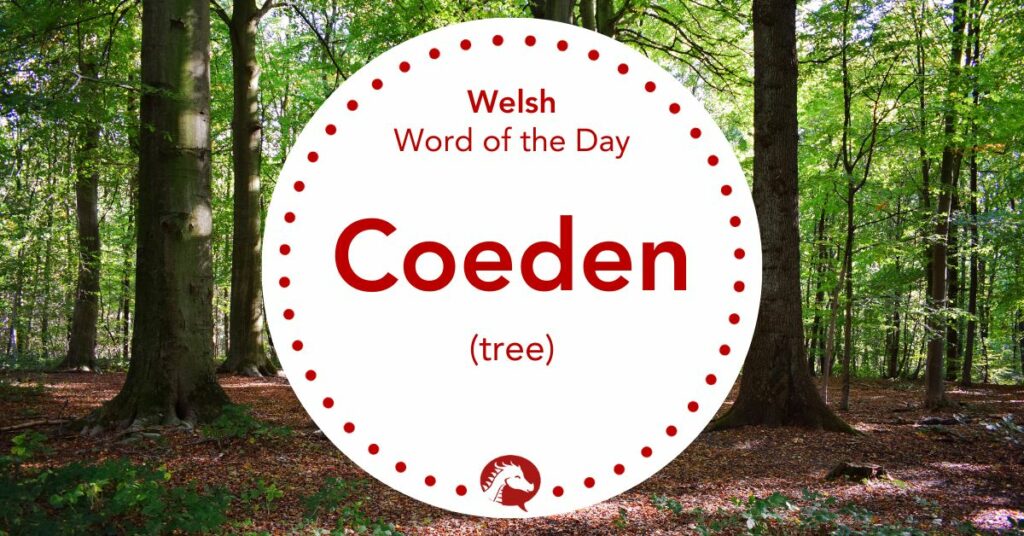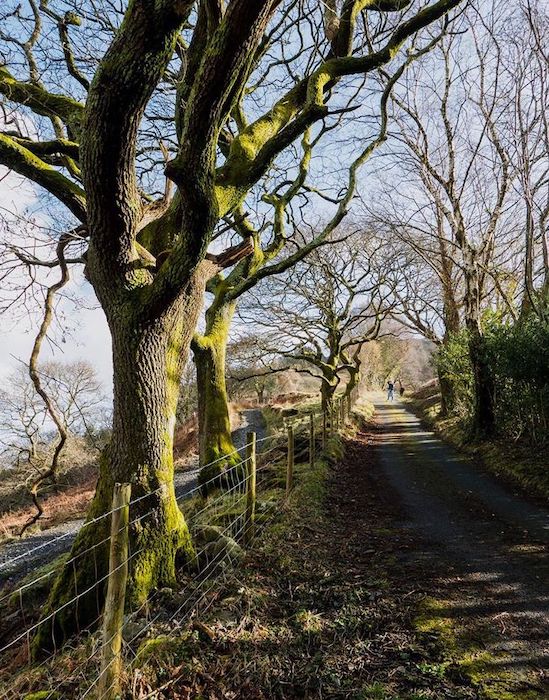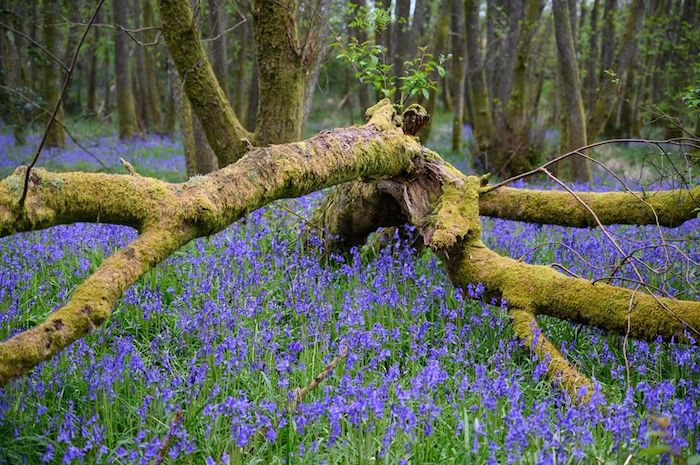
The Welsh word for tree that appears in most dictionaries and textbooks is coeden. What many learners find confusing is that the singular of tree is longer than the plural, which is coed (trees)!
coeden
tree
Note: Coeden is a feminine noun, so c always mutates to g after the definite article y (the).
Mae’r plant yn dringo’r goeden.
The children are climbing the tree.

Below are a few common Welsh terms containing the words coeden and coed:
- coed tân / coed llosgi = firewood
- coed cadw = preserved wood
- coeden Nadolig = Christmas tree
- coed ffrwyth = fruit trees
- coed plan = a plantation, nursery for young trees
The word for forest or wood in Welsh is coedwig (plural: coedwigoedd).

Although most commonly used to refer to wood, timber or objects made out of wood, the word pren (plural: prennau) can also mean tree in certain contexts. For example, in the Bible, the forbidden tree is known as the pren gwaharddedig and an apple tree may be called either a pren afalau or coeden afalau. And let’s not forget that famous expression…
Mae’n methu gweld y coed gan brennau.
He cannot see the wood for the trees.
In some regions such as the Vale of Glamorgan, Llanelli, Carmarthenshire and Swansea, you may also hear a tree referred to as colfen (plural: colfenni / colfennau). In others however, colfen actually means large branch.
Some parts of the tree include: boncyff (tree trunk/log), cangen (branch) / canghennau (branches), deilen (leaf) / dail (leaves) and gwraidd (root) / gwreiddiau (roots).
